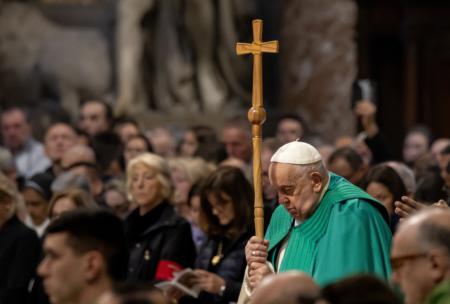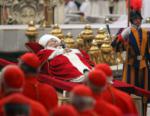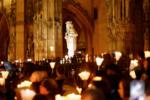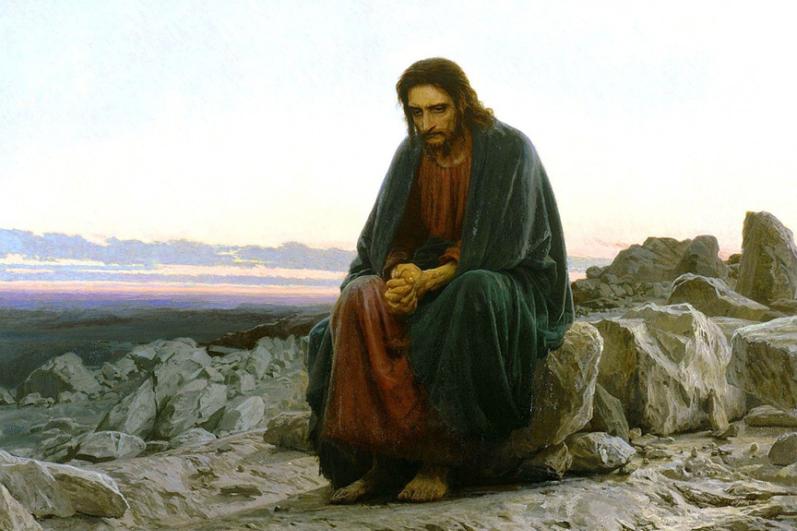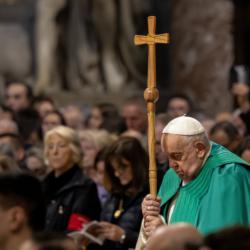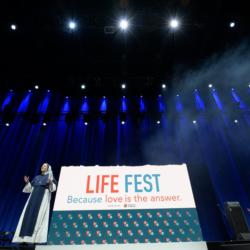Fasting: Fighting a battle against self
"He was hungry." Luke tells us of Jesus' struggle with the devil in the desert, during which he fasted for 40 days. At the end of it, as you might suspect, he was hungry (Luke 4:2). He proved to us that man does not live by bread alone, because we depend even more upon God, who truly sustains our lives. Even though we must eat and drink, fasting shows us that we have deeper needs. Being hungry can be good, simply for reminding us of this truth.
America has descended into a new period of bread and circuses, forgetting the deeper needs of our transcendent nature. We are not even trying to fight the spiritual battle. Even though a good portion of the country considers itself Christian, the sociologist Christian Smith popularized a new term to encapsulate the religious sentiments of most Americans of any denomination: Moralistic Therapeutic Deism, which I would describe as be nice, feel good, and God is absent, although you can call out to him in prayer in case of emergency. In this religion of self, God becomes subordinate to the individual's wants and desires, reinforcing the modern notion that the self is reality.
Carl Trueman's masterful book, "Strange New World: How Thinkers and Activists Redefined Identity and Sparked the Sexual Revolution" (Crossway, 2022), explains how we enshrined the self in so exalted a position. We now seek to shape our identity through the fulfillment of our desires, particularly sexual ones, and insist that others affirm our choices to validate our sense of worth. Trueman explains, "The modern self is one where authenticity is achieved by acting outwardly in accordance with one's inward feelings" (23). The scope of our action has expanded through technology, opening up seemingly endless possibilities for self-expression: "The collapse of traditional, external anchors of identity -- perhaps most obviously those of religion, nation and family -- explains the attraction of the turn inward. The rise of technology feeds the notion that we can bend nature to our own will, that the world is just so much raw, plastic material from which we can make whatever meaning or reality we choose" (108-09). Behind this attempt to redefine the self and reality, we can identify the age-old temptation to become a god unto ourselves, defining for ourselves what is good and evil.
"Woe to you that are full now." In acting upon all of our desires without reflection or restraint, we have lost self-control and a desire for higher goods that are more arduous to obtain. With a full stomach, it is hard to remember that we do not live on bread alone. Human beings are naturally averse to suffering, but we can prove that we are more than simply earthly matter by choosing to suffer willingly. Why would anyone do that? Even on a natural level, we see that accomplishing anything worthwhile requires sacrifice. In the runup to the Super Bowl, ESPN ran a feature on four-time champion Joe Montana, who "knew the secret to winning football better than anyone. It wasn't athleticism or mental acuity or even accuracy. 'Suffering,' Ronnie Lott says." His father had taught him, "'Hey, look, you have to be willing to go die for it.'" And he was speaking about football.
Love provides an even more profound reason to choose sacrifice and suffering. Nothing pulls us out of an inward focus more than love, which is not a feeling but a choice to put the good of the other first. Suffering proves love, because without it, it's too easy for love to remain lip service. If I truly choose another before myself, then I will sacrifice for their good. This is true in our relationship with God as well, of course. Jesus went out into the wilderness to be with his Father, to put him first, to show there was nothing more important. His hunger proved his love by proving that he would not be satisfied by anything less.
"Blessed are you who hunger now." Lent is a time of fasting, when Christians enter into the desert with Christ to put him first and to fight against all the attachments and temptations that keep us from him. It is time to say, "I will not be full, I will not be satisfied with normal food, because I seek the bread of heaven." Jesus presents himself as the daily bread, which has come down from heaven, through which we will live forever. And yet, it is too easy to overlook this food, as we become full with the junk that clouds our minds and inflames desires without ceasing. During Lent, we say "no" to that which does not truly satisfy.
The "self," our own selfish being, our individuality that makes each one of us number "one," must die. In the desert, we do not battle only with temptations from the outside, but especially those that come from within. We have to make a choice whether we will follow the religion of self or take up our Cross to live for someone else. It is only by dying to self that we can truly live for God, a life that will be happier, holier and more truly "me" -- as God made me and called me to be forever.
